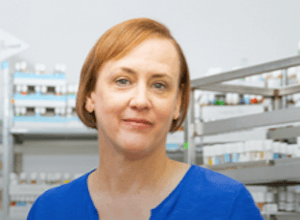How To Improve Your Healthspan, Say 5 Scientists

Improve your healthspan by improving you lifestyle and environmental factors, say scientists. They say up to 90% of what influences your healthy years is determined by what you do, not your genetics. Learn what you can do now to age better.
You want to improve your healthspan, yes?
Before you answer, don’t confuse healthspan with lifespan. Many people say they don’t want to live a longer than normal lifespan, because they don’t want to experience the frailty, diseases and dependence associated with an “unnaturally” long life.
But was is an unnatural lifespan?
The life expectancy in Swaziland, a country in Africa, is 49 years, whereas people in Japan have the longest life expectancy at 84 years. The difference is not genetics, but lifestyle habits, as well as environmental and socioeconomic conditions.
The people in Swaziland may think that 49 is a tolerable, if unwanted, lifespan, but certainly those in Japan would be bitterly opposed to accepting an average lifespan nearly 40 years less than they’ve attained.
What I’m getting at is that your impression of what is old, before you are old, is shaped by what you observe, and we see is that people older than 80 are mostly encumbered by frailty, chronic disease and dependency — none of which we want to experience.
But what if we knew we could live past 80 in good health, mobility and a well-functioning mind? Why wouldn’t you want that! I do, and if you do as well, read on, because I’m going to summarize and comment on what five anti-aging scientists say you can do now to improve your healthspan.
Recently, Marin Living magazine profiled some of the anti-aging research being conducted at the Buck Institute for Research on Aging located in Marin County, California. As the premier independent biomedical research institute that studies aging and age-related disease, “The Buck” is devoted to research that can help you improve your healthspan, and is making great strides in that direction.
In this post, I’ll summarize the Marin Living article and include my commentary about how you can begin to improve your healthspan now.
Time is ticking.
The Buck Institute and CEO Dr. Verdin
The Buck is located in northern Marin County, the county I live in. A magazine devoted to Marin County, Marin Living, recently interviewed five scientists working at the Buck about the science of aging
Let’s begin with Eric Verdin, PhD. whose a native of Belgium, and the President and Chief Executive Officer of the Buck Institute. He’s published more than 210 scientific papers and holds more than 15 patents.
In addition to his management role at the Buck, Dr. Verdin runs a lab there focused on the role of epigenetic regulators in the aging process. Dr. Verdin studies how metabolism, diet, and small molecules regulate the activity of histone deacetylases and sirtuins, and thereby the aging process itself, and its associated diseases, including Alzheimer’s.
(Read Dr. Verdin: How To Live Better, Longer.)
Dr. Verdin says that 90% of your healthspan — those years during which you are healthy — is determined by lifestyle factors like food choices, exercise and sleep, leaving a mere 10% predetermined by your genetics.
The good news about this is that your healthspan is within your scope of control. The bad news is that your healthspan is within the scope of your control. Yes, knowing that you’re in the driver’s seat kinda nullifies excuses.
Dr. Verdin points out that in Marin County the average life expectancy is 87, and he predicts that if people’s lifestyles here were optimized, the average life expectancy could climb to 95, given Marin’s outdoor lifestyle, ease in securing healthy food and strong sense of community — all important factors in extending more years of healthy life.
What follows is some of the groundbreaking work that four scientists (among many) led by Dr. Verdin are doing to help you improve your healthspan.
Dr. Francesca Duncan On Reproductivity In Aging Women
Francisca Duncan, PhD investigates the correlation between reproductivity and aging in women. Her aim is to understand the impact that a loss of reproductive capacity experienced as they age have on their health.
Women age earlier than men in terms of their reproductive capacity, which involves various hormones produced by their ovaries. These hormones are critical for organ health, but they decline beginning with menopause.
Much data show that menopause accelerates aging phenotypes. (A phenotype is the set of observable characteristics of an individual resulting from the interaction of its genotype with the environment.) This is largely related to less estrogen during and after menopause, which is important for healthy organ system function.
(See Bio-identical Hormone Replacement Therapy Is Simple.)
Dr. Duncan says that any tissue or system that has estrogen or progesterone responsiveness would be positively influenced if the onset of menopause was delayed, including cardiovascular system, brain, immune cell function and bone health.
Certain lifestyle changes can slow down the rate that a woman’s fertility declines, such as reducing bodyweight if obese, and reducing blood sugar if pre-diabetic or diabetic. Conditions like obesity and diabetes can have a negative impact on gamete (reproductive) health and fertility, so diet is really important, as is a clean, non-smoking, unpolluted environment.
Dr. Duncan asserts that optimizing endocrine function during aging could provide significant health benefits to women throughout their lifespan, including the years after childbearing.
For more about female reproductive longevity and equality research at the Buck Institute, go here.
Dr. Julie Andersen On Preventing Alzheimer’s and Parkinson’s
Julie Andersen, PhD studies how to prevent and cure neurodegeneration, with a particular focus on Alzheimer’s and Parkinson’s diseases.
Her lab is focused on neurodegeneration, a common byproduct of aging, and something that must be addressed to improve your healthspan.
The influence of the microbiome on Alzheimer’s
Dr. Andersen has tested the efficacy of a natural dietary gut flora–derived metabolite called urolithin A (UA) in slowing or preventing the presentation of Alzheimer’s disease. UA is metabolized in the gut from a precursor called ellagic acid (EA). EA is found in several health foods, such as pomegranates, berries and walnuts.
Studies show that our microbiome may play a role in neurological conditions such as autism, epilepsy and depression. This microbiome is the bacteria, fungi, protozoa and viruses that live inside our body, principally in the gut. Research with mice indicate that as they age they display plaques and tangles as well as losses in cognitive function similar to those observed in human Alzheimer’s patients.
Remarkably, oral administration of UA slows the onset of Alzheimer’s in mice, suggesting that UA is neuroprotective. This leads to tests to determine if production of UA can be restored by introducing a more youthful microbiome to the older mice as they begin presenting with Alzheimer’s. Such work will further scientists’ understanding of how reinstating a more youthful microbiome restores gut-brain signaling and protects brain neurons.
Lifestyle factors that affect Alzheimer’s and Parkinson’s
Dr. Anderson underscores that a person’s choices strongly matter in relation to developing diseases like Alzheimer’s and Parkinson’s. People who regularly engage in physical activity, don’t smoke, drink alcohol in moderation, eat a high-quality diet and engage in cognitive activities have a 60% reduced risk for getting Alzheimer’s.
Parkinson’s has been associated with environmental and lifestyle factors, such as exposure to pesticides, a high-fat diet, lack of exercise and lack of foods rich in antioxidants, including herbal teas and coffee. In the exercise category, it’s been shown that aerobics, resistance training and stress management via mind-body practices including meditation, yoga, tai chi and dance have also been beneficial activities to reduce the risk of Parkinson’s.
For more about neurodegenerative diseases and aging studied at the Buck Institute, go here.
Dr. Judith Camipsi On Cellular Senescence
Judith Campisi’s lab studies the role of inflammation on cellular senescence and other age-related diseases.
Cellular senescence is when cells become senescent typified by acquiring three new features:
- They stop dividing,
- They become somewhat resistant to dying, and
- They secrete many bioactive molecules (the senescence-associated secretory phenotype or SASP).
The SASP are particularly important for driving aging, because it includes a large number of factors that promote systemic inflammation. Low-level chronic inflammation is a hallmark of aging tissues, which is why it’s often referred to as “inflammaging”. Inflammation is an essential process during tissue repair, but it can be destructive to tissue structure and function when unabated; ie: chronic.
There’s a strong correlation between senescent cells and chronic disease in various mammals, such as mice and humans, but also in fish, like the zebrafish. However, as you know, “correlation does not prove causality”, and yet there is now evidence that transgenic (genetically modified) mouse models show that it’s possible to selectively eliminate senescent cells at any point in the lifespan.
Experiments using these transgenic mice demonstrate that senescent cells are indeed casual for a surprisingly large number of human age-related diseases,ranging from neurodegeneration to late-life cancer. Moreover, studies that have used senolytic drugs that kill senescent cells support this conclusion regarding causality, which is that the elimination of senescent cells can either delay the onset, ameliorate the severity of, or in some cases, reverse the manifestation of many age-associated diseases.
(Read Can 4 Natural Compounds “Eliminate Senescent Cells” and Prolong Your Healthy Lifespan?.)
Dr. Campisi and other researchers in her lab have learned three important lessons from their research:
- Although damaging, senescent cells are almost always rare, comprising only a small percentage of cells in any tissue.
- In transgenic mice, it’s not necessary to kill all senescent cells in order to delay, ameliorate or reverse age-related diseases; generally, eliminating 70 to 80% of senescent cells is sufficient.
- Caloric restriction and exercise reduce the number of cells that express detrimental inflammatory SASP factors.
(These over-the-counter supplements can help rid yourself of senescent cells.)
For more about the research at the Buck Institute on the role of senescent cells and chronic inflammation on disease, go here.
Dr. Brianna Stubbs On Metabolic Signals To Increase Longevity 
At the Buck Institute, Brianna Stubbs, PhD studies the role that ketones play to improve your healthspan.
Ketones are compounds our body can break down for energy instead of using its usual “go to” fuels, glucose (sugar) and fat. Ketones primarily exist to fuel our brain when the supply of glucose is low, and it’s only then that our body makes it.
If you eat a very small amount of carbohydrates, or fast for a day or longer, your body will make ketones. Until recently, this was the only way to produce ketones in the blood, but now drinkable ketones exist that can give the body access to ketones without any other dietary changes.
Ketones play a role in how the body responds to stress in a way that might improve your healthspan by helping to switch on multiple cellular pathways that cause cells to clean themselves up and regenerate. Ketones may also be able to treat some of the common diseases of aging such as heart failure and neurodegeneration.
Dr. Stubbs lab is working on a supplement to mimic the effects of the ketogenic diet, a novel form of edible ketone called a ketone ester called Metabolic Switch, which will be released this year by a company called Juvenescence. Ketone esters are a compound that breaks down inside the body and raises the levels of ketones in the blood without you needing to follow a ketogenic diet or undertake fasting. A ketone ester works very quickly, as it doesn’t rely on the breakdown of fats as does a ketogenic diet.
Your Takeaway About How To Improve Your Healthspan
As the leader of the Buck Institute, Dr. Eric Verdin, asserts that 90% of your healthspan is determined by lifestyle factors like food choices, exercise and sleep.
Specifically, the common interventions that can abate several attributes of aging touched on by the five scientists whose work is reviewed in this post are:
- Regular exercise that includes aerobic, anaerobic and mobility work (read my six-part series)
- Eat a nutritious, plant-dominate diet filled with pomegranates, berries and walnuts
- Reduce calories on an intermittent basis
- Reduce carbohydrates on an intermittent basis
- Engage in cognitive activities (read four ways to build a better brain)
- Don’t smoke
- If you must drink alcohol, do so in moderation
I don’t think it’s too harsh to conclude that If you’re unwilling to devote yourself to incorporating the above list into your lifestyle choices, you’re not serious about extending your healthspan. And that’s OK. Just be mindful.
Last Updated on November 8, 2022 by Joe Garma







